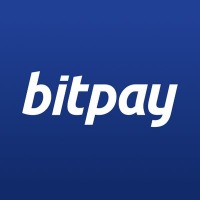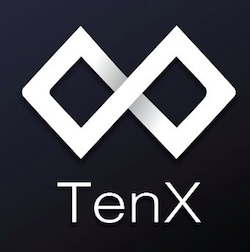What happens when something that is meant to disrupt is itself disrupted? The outcome remains to be seen, but we’re acutely aware of the “why” — it’s a “why” common to many financial and sector-specific questions nowadays: blockchain happened.
In this article, we look at how giving fintech applications the blockchain treatment takes the financial sector to the next level, in areas such as wallets and money transfer, processing and payments infrastructure, wealth management, and consumer lending using cryptocurrencies as collateral.
Dethroning Fintech
Up until a few years ago, fintech was as groundbreaking as the financial industry could hope to get. And with good reason, for adding the suffix tech heralded the introduction of the latest and greatest of what technology has to offer.
Since the advent of blockchain, however, fintech has become but one use case in the onslaught of disruptive uses our favourite new technology brings to the table.
Fintech, which has been around since the 1950s, saw a record total of US$27.4 billion invested into its operational coffers in 2017. Blockchain’s ICO-driven cash conveyor belt has moved US$3.88 billion down its pipeline in the same period. Blockchain, remember, was first implemented circa 2009 — a mere 9 years ago.
Thanks to the crucial role ICOs have played in expanding blockchain’s growth and reach, it’s hard to separate the technology from its financial persona.
Thus far, blockchain has been the largest crowdfunding exercise in history. Only it’s not exactly crowdfunding. Nor is it, as the largest venture capital get-together, exactly venture capitalism. Ditto for the foremost initial public offering (IPO) that isn’t quite an IPO.
Moreover, blockchain’s most well-known application, cryptocurrencies, have captured the attention (and pockets) of millions around the world and, as a “new form of money”, is rewriting the rules of the finance game from the inside out.
Thus, the association stands: blockchain isn’t always fintech, but fintech has been given a playmate it won’t easily be able to cast aside. For what is more of a game changer for the finance sector than to have the industry itself be turned on its head?
Fintech-Specific Use Cases
While the introduction of blockchain and cryptocurrency is bringing the very identity of the finance world into question, what follows are some of the ingenious startups that build on fintech’s earliest roots, namely bringing finance into the 21st century, by putting their service offerings on the blockchain.
Paving the way for the 22nd century, perhaps? A PwC survey indicates that 55% of fintech businesses surveyed plan to adopt blockchain as part of their production system or process by 2018. By 2020, this rises to 77%.
Wallets and Money Transfer
Currently the foremost blockchain use case, money transfers might just be what is leading the blockchain revolution. The cost savings gained by transferring funds peer-to-peer via an Ethereum or Bitcoin wallet is nothing short of astronomical compared to traditional avenues such as bank transfers, PayPal, or Western Union.
It’s no wonder that service providers across the money transfer sector are keeping a wary eye on the technology’s market evolution.
Here’s a roundup of 6 startups that are disrupting this space.
BitPesa

BitPesa, launched in November 2013, was the first company to bring cryptocurrencies to Africa. BitPesa is pan-Africa’s solution to the high cost of cross-border business payments, but its platform also allows for buying and selling of bitcoin. BitPesa’s headquarters are in Nairobi, Kenya, with offices in Nigeria, Senegal, London, and Luxembourg.
Africa is one of the markets that stands to gain the most from the advantages of blockchain.
A lecturer from Uganda explains his connection to Bitcoin:
When I tried to bring my cousins on board, they called my father in the village and said, ‘Your son has gone mad. For me, I was fascinated by the mathematics behind blockchain technology. But the local man is interested in money, not the mathematics, so I normally sit with them and show them how I get and withdraw my money. Once they see how easy it is, they also want bitcoin.
As an online payment platform, Bitpesa leverages blockchain technology in processing B2B payments to, from, and within Africa, although current operations within the continent are limited to the sub-Saharan region, including Kenya, Nigeria, Tanzania, Uganda, Senegal, and the DRC.
Blockchain allows transactions to be processed far quicker and at a significantly lower cost than traditional wire transfer services such as Moneygram, Western Union, or SWIFT.
BitPesa estimates that its service has made possible a 75% cost reduction of Forex B2B payments, and with a reduction in intercurrency settlement times from 12 days to 2 hours.
BitPesa’s client list include African businesses, multinational companies, and international remittance companies that make use of their API services.
While the company’s focus remains African (with eventual plans to expand globally), they’re keen adherents of international regulatory practices and was, in fact, the first blockchain company to be licensed by the UK’s Financial Conduct Authority.
Over the course of a total of 5 funding rounds, they’ve enjoyed funding from the likes of Pantera Capital, BitFury, and Greycroft, to a total value of US$10 million.
The founding team behind BitPesa is rich in international expertise.
Founder and CEO Elizabeth Rossiello has experience at Credit Suisse and Goldman Sachs, served as a consultant for Grameen Foundation, Gates Foundation, and the Acumen Fund, and holds a seat on the World Economic Forum’s Future Council on Blockchain and the Investment Committee for Bamboo Capital. She has an M.A. in International Business and Finance from Columbia University.
Charlene Chen, co-founder and COO, is a B.Sc Computer Science Alumni from Duke University and holds an MBA from the University of California, Berkeley. She’s worked for Microsoft, Eli Lilly, Deloitte, and Kickstart International, and has extensive professional experience in East Africa.
According to Rossiello:
We have expanded across Africa and Europe, added a stellar roster of Fortune 100 companies as clients and are receiving growing support from regulators. Global companies trading in Africa see the immediate value and efficiency of using BitPesa, as they know the pain of using existing cross-border payment services in these markets.
Circle

Ever think about why you can email your friend in China, read an Italian newspaper on your tablet or post pics of your trip abroad instantly and virtually free, when moving money is archaic and frustrating? We did. A lot.
So says peer-to-peer payment app Circle. Circle has been in existence since 2014, and while their initial offering as a blockchain company was enabling cheaper currency transfers, the introduction of a new consumer offering has allowed them to reduce their processing fees to a nice round zero (for intra-currency transfers; for foreign exchange, Circle charges a marginal fee).
Circle aims to become “the Gmail of casual payments”.
The Circle platform allows users to send social payments to anyone, thanks to a process that’s as simple as sharing a text message or email with a friend. In fact, Circle’s Apple-based iMessage application makes it possible for iOS 10 users to send USD, EUR, GBP, and Bitcoin to anyone using their phone’s texting app.
Circle has received €128 million in private funding from companies like Goldman Sachs, Pantera Capital, and Accel Partners, and a wealth of Chinese investors, including search engine Baidu. The company celebrated a milestone crossing of the US$1 billion transaction processing mark.
In addition to establishing Circle China to capitalize on the growing Chinese middle class, Circle has also moved to acquire cryptocurrency exchange Poloniex, one of the world’s leading token exchanges.
Poloniex is available in more than 100 countries and, as one of the first crypto marketplaces to reach US$1 billion daily trading volume, it’s firmly entrenched in the crypto landscape.
A blog post by founders Sean Neville and Jeremy Allaire following the acquisition indicates that Circle has big expansion plans in the global market:
In the coming years, we expect to grow the Poloniex platform beyond its current incarnation as an exchange for only crypto assets. We envision a robust multi-sided distributed marketplace that can host tokens which represent everything of value: physical goods, fundraising and equity, real estate, creative productions such as works of art, music and literature, service leases and time-based rentals, credit, futures, and more.
We believe that the contractual rules around exchange for anything and everything will become increasingly represented in distributed global software, rely on inconvertible distributed shared memory in the form of distributed ledgers, and benefit from the services of global multidimensional marketplaces such as Circle Poloniex. The future of the global economy is open, shared, inclusive, far more evenly distributed, and powerful not only for a few chosen gatekeepers, but for all who will connect.
Processing and Payments Infrastructure
While consumers in most countries are a far cry from using blockchain-powered payments, use cases like Australia’s Living Room of Satoshi solution is proof that there’s an appetite — and a eager market — for using cryptocurrencies to pay bills.
BitPay

Back when Bitcoin won the #Money2020 race, it was apparent to everyone in the crypto space who followed Amélie’s race (or helicopter ride, as the case may be) to the finish line that if crypto is to gain traction in the real world, a lot of merchants would have to go from “Bit-what?” to “Sure, here is a list of all the cryptocurrencies we accept.”
In order to cross the barrier between owning bitcoin and using bitcoin, BitPay’s been hard at work since 2011 — long before most of us had even heard of the tech, never mind hodling it like our lives (or loans) depend on it.
By 2013, they reached a company milestone of 10,000 merchants using BitPay to accept Bitcoin. Their extensive client list includes big names the likes of Microsoft and Virgin Galactic, but totals into the hundreds of thousands.
BitPay keeps their eye on the prize, which in their case is mainstreaming acceptance, spending, and saving of Bitcoin and Bitcoin Cash. It’s no wonder, then, that the company is the globe’s largest bitcoin payment processor with a mercantile presence on six continents (Antarctica being slow to go mainstream), serving countless bitcoin users.
By the end of 2016, 200,000 monthly transactions had been reached, thanks in part to integration with over 30 e-commerce and point-of-sale integrations. And if you think that was part of the “Bitcoin before” story, not so: in 2017, BitPay achieved record growth, seeing a whopping 700% increase in revenue.
This blockchain business, however, doesn’t rest on its laurels. To aid the payment process from a user perspective, the secure BitPay Wallet, which sees more than US$3 billion in monthly transactions, has the ability to require payment confirmation by up to 12 different devices, and automatically verifies Bitcoin and Bitcoin Cash addresses, making the buyer-seller relationship a trusted one.
If wallet transfers aren’t your thing, there’s always the BitPay Card, a Visa-powered debit card that requires a single wallet click to get your money swipe-ready.
Like many solicitous cryptocurrency companies, BitPay is all for giving back in order to help foster industry growth. The release of their open-source modular node BitCore supports the expansion of the bitcoin ecosystem.
Company president Stephen Pair, of IBM fame until he left to co-found BitPay, and co-founder and executive chairman Tony Gallippi are supported by a skilled executive team and a wealth of expertise and talent on their board of directors and advisory team.
This includes Arthur Levitt, the US Securities and Exchange Commission’s longest-serving chairman, a former policy advisor to Goldman Sachs, and a director of Bloomberg News parent company, Bloomberg LP, and Carl Stern, former president and CEO of the Boston Consulting Group and erstwhile vice chairman of the investment banking division at Goldman Sachs.
With total raised capital amounting to over US$70 million, a testament of faith in its offerings, it’s small wonder that the company continues to innovate through strategic partnerships. These partnerships include converting converting gold to Bitcoin along with London’s High Street gold investment firm Sharps Pixley, and teaming up with leading crypto exchange Bithump to facilitate cross-border payments between South Korea and European and US markets.
According to Tyler Sosin, partner at venture capitalist firm Menlo Ventures who selected BitPay as its first crypto investment:
We gravitated towards BitPay because we felt the company had identified a killer use for crypto in facilitating low cost payment solutions for cross-border commerce and B2B payments, which is a massive market poorly served by the existing payment rails. We are impressed with the company’s execution—it has demonstrated extremely efficient growth and a stickiness with merchants and consumers that is the hallmark of many great payment service providers. As the market leading cryptoprocessor, BitPay is well positioned to both benefit from and serve the fast moving crypto-ecosystem.
TenX

Singaporean crypto wallet TenX aims to be the rockstar of crypto debit cards, and judging by its market traction (the ICO is in the top 10 of most money ever raised during an ICO, and US$1 million seed capital by Fenbushi Capital), it’s succeeding.
The young and dynamic team, led by co-founders Julian Hosp, Toby Hoenisch, Michael Sperk, and Paul Warrunthorn, has lived the pain points associated with making payments on the go during international travel and as participants in a global economy.
Accordingly, TenX offering is exactly what the consummate entrepreneur requires to build a business and a nomad lifestyle in today’s fast-paced, distributed world.
After raising US$80 million during its ICO, TenX remains committed to the goals it set out to achieve, namely sending and spending crypto money anywhere, anytime. The payment system, run as an Ethereum dapp, achieves this via its TenX mobile wallet and TenX debit card.
The wallet can be loaded with a variety of different cryptocurrencies, including Bitcoin, Etereum (including ERC-20 support), and Dash.
Available as an Android, iOS, and web app, the wallet supports TenX’s principle of always-on user access. The Android app was downloaded over 50,000 times while still in Beta mode, indicative of a dire need for the company’s service offerings.
TenX solves the headache many crypto holders face when spending, moving, or converting coins. The Visa-powered debit card eliminates the need to find crypto-accepting merchants by converting cryptocurrency funds into whichever native currency you may need, dependant on your geographical location at the time.
Akin to a credit card reward points system, it also incentivizes users according to usage frequency by offering a 0.1% PAY token reward per purchase. Moreover, TenX charges no additional fees over and above the standard exchange rate. The card is accepted in nearly 200 countries by over 36 million point-of-sales.
The company processed transactions to the worth of around US$100,000 per month by mid-2017, and has as its target a million users and monthly processing figures in the region of US$100 million by the end of 2018.
Of the startup’s dedication to innovation says company president Hosp:
We are the first company to actually integrate Ethereum live into our system. … We are the first company in the world that allows you to have you deposit [Ether] into, keep it in [Ether], so if [Ether] keeps going up you keep benefiting from that price increase.
Similar to BitPay, TenX has also partnered up in a gold-to-crypto agreement, in their case with DigixGlobal, a blockchain company that specializes in tokenizing bullion into Ethereum gold tokens.
CEO Hoenisch on what sets TenX apart:
Our vision for the world seems to become reality: “Sending money as cheap and seamless as sending a WhatsApp message.
TenX is now working on COMIT (Cryptographically-secure Off-chain Multi-asset Instant Transaction), an interchain protocol first mentioned in the TenX whitepaper, that aims to solve scalability and accessibility issues in the blockchain space.
Wealth Management
According to research conducted by Calastone, asset managers could save approximately US$2.7 billion in annual costs by replacing manual fund trading operations with blockchain’s online ledger tech.
Most of us dream of having the type of problems the rich are faced with, such as which house to spend Christmas at, or how to manage our wealth. And while these are issues plaguing few of us, the following blockchain startups are ready to take the stress of what to invest in, off our hands.
After all, when your altcoin moons, there’s more than just a Lambo to spend your newfound funds on.
Swissborg

Wealth management is notorious for being elitist and in direct contrast to the continuous economic shift to democratic and, thanks to blockchain, evermore transparent governance.
Not SwissBorg.
This Switzerland-based blockchain platform, as an investment hedge fund, is administered on DAO (Decentralized Autonomous Organization) principles, and marries the best of traditional investment expertise with the best of what blockchain and AI technology has to offer, in order to adapt wealth management to the people-first demand of the 21st century.
Co-founders Cyrus Fazel and Anthony Lesoismier-Geniaux, leading an expert team with exhaustive experience in private banking, hedge fund-management, and algorithmic and quantitative trading spanning a cumulative 80+ years, reflect on the market problem Swissborg aims to solve:
The banking industry does not look the way it should in the age of digitalisation. Bad practices from a monopolistic banking system are lingering and financial players have been reluctant to embrace change. Professional wealth management services remain only reserved for the elite client base while the vast majority is strictly cut-off.
Notwithstanding signs of changes in client’s expectations, it is still difficult for bankers to be confronted with reality. The reality is that there is an urgent need for a community-centric approach where the banking system benefits are for all, not just a few. That is a pattern already seen in times of great disruption. Today, along with their communities, companies that will decide to fill in the gap by building self-regulated banking systems where everyone benefits from the best DAO standards combined with a meritocratic banking system will emerge as the future of wealth management.
Swissborg cuts out the need for financial advisors (who usually come at a premium) and laborious legal contracts when building an investment portfolio.
Instead, the company employs smart contracts in its mode of operations and plans to roll out a robo-adviser platform and a cryptocurrency exchange, in addition to a state-of-the-art computer dashboard that acts as an investor interface.
The list of blockchain companies currently employing collective intelligence in its management and organizational structure is decidedly lean, and Swissborg’s addition to the collective truly heralds a new era in how companies are run.
Their “proof of meritocracy” concept ensures that it’s the community who decides which projects the Swissborg platform invests in — a participatory action for which token holders of CHSB, the company’s native token, are rewarded.
Additionally, Swissborg, a member of Swiss Finance Startup Association, solves a hurdle many institutional investors face, which are regulatory hiccups that complicate or render investing in cryptos impossible. The Swiss startup’s off-chain crypto fund provides such investors an entry into the market by making use of the fund as a third-party investment vehicle.
In addition to adhering to Switzerland’s comprehensive regulatory requirements under its fund management license, the company is also filing for a banking licence in Europe and a cryptocurrency exchange license in Japan.
The Swissborg ICO generated US$10 million in just 12 hours. The amount of CHSB tokens an investor owns determines how many RSB — or referendum — tokens are generated whenever a referendum announcement (referring to key DAO-related decisions) is made.
In this way, Swissborg investors are able to shape the development of the company. An exampleof the results of the first referendum, held in April, can be seen here. To better understand the Swissborg technical ecosystem, read their whitepaper.
Consumer Lending
Perhaps it’s not investment channels you’re after but, instead, better cash flow.
Ever had a need to use the money you’ve invested in cryptocurrencies but you couldn’t bear to part with the future gains hodling is bound to bring you? Not to worry: the best of blockchain meets the best of credit in a pioneering sub-industry — crypto lending.
Lendo

For the first time in history, society finds itself in a most interesting spot. Cutting-edge technologies are supported — in fact, made possible — by investors that range from the mega-rich to individuals scraping the poverty line.
This makes it the first time that, theoretically, someone might have zero collateral other than their cryptocurrency investments. While this is but one target audience segment served by blockchain lender platform Lendo, it certainly makes for a notable point worth pondering in society’s continued evolutionary ascent.
By joining the Lendo network, carefully vetted licensed lenders are able to provide consumers with loans against cryptocurrency guarantees. Cryptocurrencies are stored in the Lendo platform’s top-security (offline) cold storage crypto vault
Lendo is piloting its service offerings in the UK, with a planned rollout to the worldwide market. The country-based regulations Lendo adheres to (including strict regulations its lending partners comply with as per the Financial Conduct Authority’s requirements) will serve as a global benchmark for its future international operations.
This implies complete consumer protection, making crypto loans as secure as via traditional methods.
The UK financial market, much like the British government, is set on providing greater transparency, making it the perfect breeding ground for a company administered by the transparency of blockchain to transform the lending industry. And with good reason, seeing that the average Briton owed more than £8,300 in personal loan debt in 2017.
As a company, Lendo is bullish on regulatory compliance. It was hailed “the talk of the Rock” after a stellar appearance by CEO David Honeyman at the 2018 Gibraltar International Fintech Forum, where Honeyman revealed Lendo would apply for a DLT regulation licence. This licence is an initiative by Gibraltar to provide the world’s first DLT regulatory framework to protect cryptocurrency value. Additionally, Lendo would apply to be listed on the Gibraltar Blockchain Exchange.
This is an important move, and a necessary one, owing to the space Lendo operates in.
Consumer lending is a gargantuan business. An analysis of credit exposure at Deutsche Bank’s international operations in 2017 indicates that household lending is leading the pack in terms of industry sector. At €189.6 billion for the year, it raced miles ahead of runners-up financial intermediation at €52.09 billion and commercial real estate activities at €29.18 billion.
The US alone sported an inordinate US$1,450 trillion worth of consumer loans at commercial banks in April 2018, while the outstanding balance due to lending sat at US$42.3 trillion globally in 2015.
Regulation in the lending space is not the only regulatory factor at play. Blockchain regulation by traditional authorities is a hot topic that has many experts divided as to the best way forward, but the general consensus is that some type of regulation — even if self-regulation — is necessary to provide accountability to a hitherto unsubdued (and often frenzied) industry.
According to Honeyman:
Crypto is certainly here to stay, but 2018 will see increasing pressure from governments and regulators to comply with the AML and Know-Your-Customer standards that the rest of the world needs to follow.
We see the big winners in the market being the companies who can provide the bridge between the crypto community and traditional financial services providers.
Lendo’s uniquely situated value proposition unifies a traditional financial service like lending with the best technology-driven blockchain brings to the party, including the trustless of smart contracts and utilizing cryptocurrencies as an (arguably) new asset class.
Lendo’s lending platform will track the loan application process in real time via an applicant’s private dashboard, loans will be instantly accessible once approved, and can be withdrawn from any ATM using the Lendo debit card.
Additional services include a globally-accepted credit card via Visa and Mastercard, a Lendo wallet, a token holder loyalty system, and a merchant system. Thus, Lendo might just be heralding the newfound era of a full-scale cryptobank.
The Lendo ICO is currently running. To participate, familiarize yourself with the commercial and technical white papers and register an account.
Conclusion
These are early days yet, with blockchain still in an exploratory phase.
It’s the startups of today that will give rise to the solutions of tomorrow, and for the second time in one generation, we have the opportunity to watch an industry climb the beanstalk from the ground up in order to reach the goose that lays the golden eggs.
Fintech managed to take us out of the dark ages, but the addition of blockchain promises to send us shooting across the galaxy at warp speed. The best is yet to be.
Related: 24 Industries That Blockchain Will Radically Transform

